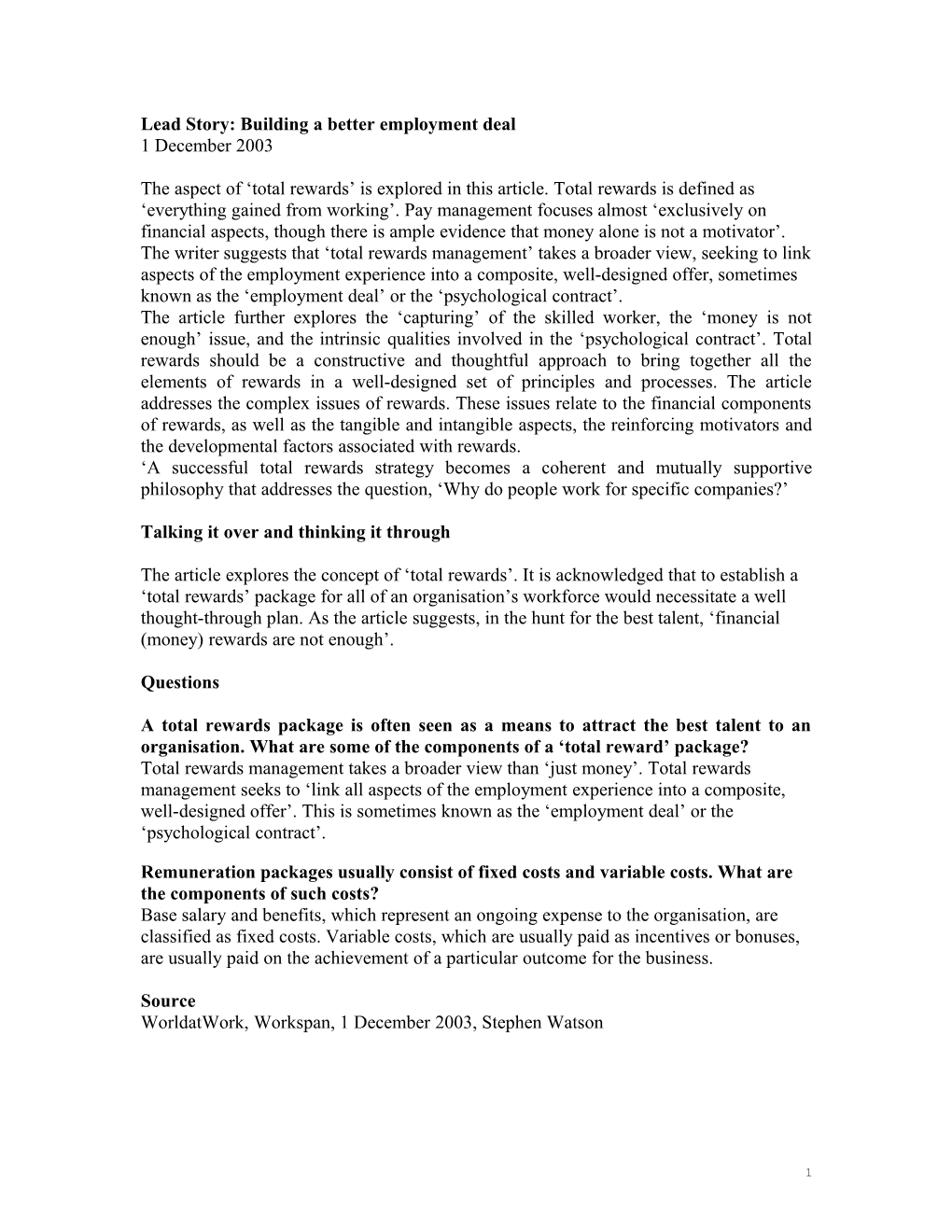Lead Story: Building a better employment deal
1 December 2003
The aspect of ‘total rewards’ is explored in this article. Total rewards is defined as ‘everything gained from working’. Pay management focuses almost ‘exclusively on financial aspects, though there is ample evidence that money alone is not a motivator’. The writer suggests that ‘total rewards management’ takes a broader view, seeking to link aspects of the employment experience into a composite, well-designed offer, sometimes known as the ‘employment deal’ or the ‘psychological contract’.
The article further explores the ‘capturing’ of the skilled worker, the ‘money is not enough’ issue, and the intrinsic qualities involved in the ‘psychological contract’. Total rewards should be a constructive and thoughtful approach to bring together all the elements of rewards in a well-designed set of principles and processes. The article addresses the complex issues of rewards. These issues relate to the financial components of rewards, as well as the tangible and intangible aspects, the reinforcing motivators and the developmental factors associated with rewards.
‘A successful total rewards strategy becomes a coherent and mutually supportive philosophy that addresses the question, ‘Why do people work for specific companies?’
Talking it over and thinking it through
The article explores the concept of ‘total rewards’. It is acknowledged that to establish a ‘total rewards’ package for all of an organisation’s workforce would necessitate a well thought-through plan. As the article suggests, in the hunt for the best talent, ‘financial (money) rewards are not enough’.
Questions
A total rewards package is often seen as a means to attract the best talent to an organisation. What are some of the components of a ‘total reward’ package?
Total rewards management takes a broader view than ‘just money’. Total rewards management seeks to ‘link all aspects of the employment experience into a composite, well-designed offer’. This is sometimes known as the ‘employment deal’ or the ‘psychological contract’.
Remuneration packages usually consist of fixed costs and variable costs. What are the components of such costs?
Base salary and benefits, which represent an ongoing expense to the organisation, are classified as fixed costs. Variable costs, which are usually paid as incentives or bonuses, are usually paid on the achievement of a particular outcome for the business.
Source
WorldatWork, Workspan, 1 December 2003, Stephen Watson
1
